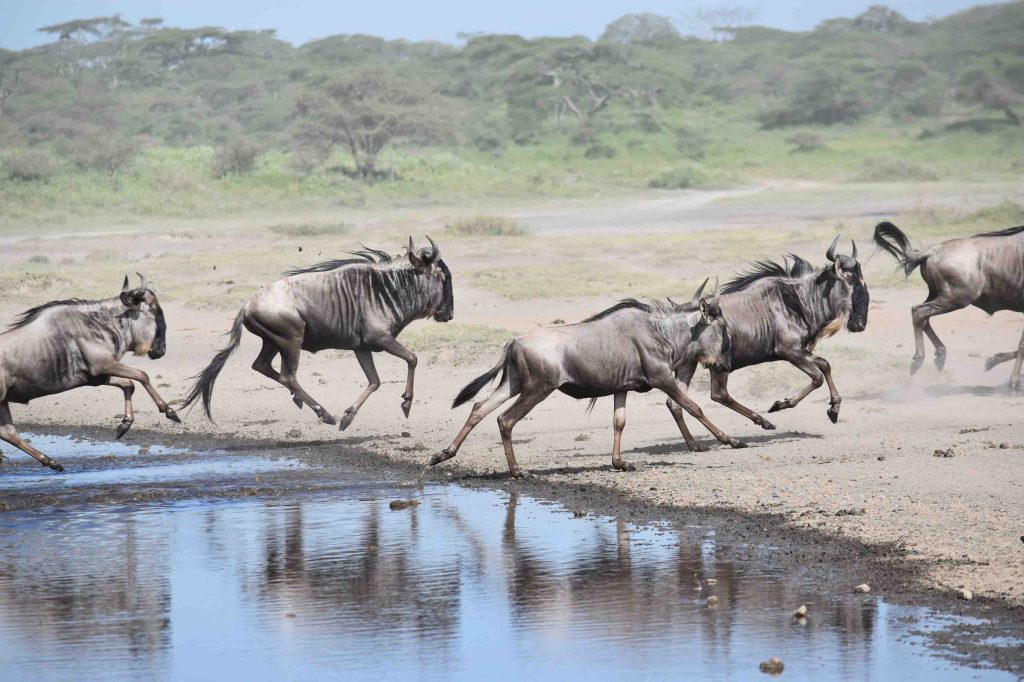- About us
- Safaris and Trekking
- Destinations
- Activities
- Blog
- Contact

One of the great wildlife spectacles on Earth involving over 2 million wildebeest, zebras, and gazelles moving in a continuous cycle across the Serengeti ecosystem in Tanzania and the Masai Mara in Kenya. The migration is driven by the search for fresh grazing and water, and its timing varies slightly each year depending on rainfall patterns.
The herds are concentrated in the southern Serengeti, where the short grass plains provide ample food for the young. This is also the calving season, with thousands of wildebeest calves born daily. This is a great time for predator sightings. Lions, cheetahs, and hyenas are abundant, taking advantage of the vulnerable newborns. The herds begin to disperse slightly as the calves grow stronger. The plains are still green, but the wildebeest start to prepare for their journey north.
The migration starts moving northwest, often splitting into smaller groups, towards the Moru Kopjes and Seronera areas.
The herds reach the Grumeti River, where they face their first major obstacle. Crocodiles and strong currents make river crossings dangerous and dramatic. This is a key time for witnessing predator-prey interactions
The herds move into the northern Serengeti and begin crossing into Kenya’s Masai Mara other large groups of migrant herds remain in Northern Serengeti (Tanzania). The Mara River crossings are the most famous and perilous part of the migration, with crocodiles and strong currents posing significant threats.
The herds are now in the Masai Mara and some in Northern Serengeti. The Mara River crossings continue, and the predators are highly active. This is a peak time for wildlife viewing, with large concentrations of animals and frequent predator activity. As October begins, The herds commence their journey back south, leaving the Masai Mara and re-entering the northern Serengeti. The migration is less concentrated, and the animals spread out.
The herds move south through the central and eastern Serengeti. The short rains begin, rejuvenating the grasslands and encouraging the animals to continue their journey.
The herds return to the southern Serengeti and Ndutu Plains, completing the cycle. The calving season begins again, and the cycle repeats.
Let us know if you’re planning to witness the migration as we have experienced guides who can track the herds as it varies slightly each year depending on rainfall patterns.
Royal Travel is a trusted and successful travel agency in Tanzania. We are an established and energetic agent with over 5 years of expertise.
Copyright © 2025 Royal Travel Safaris. All Rights Reserved.